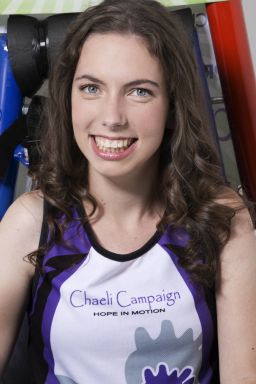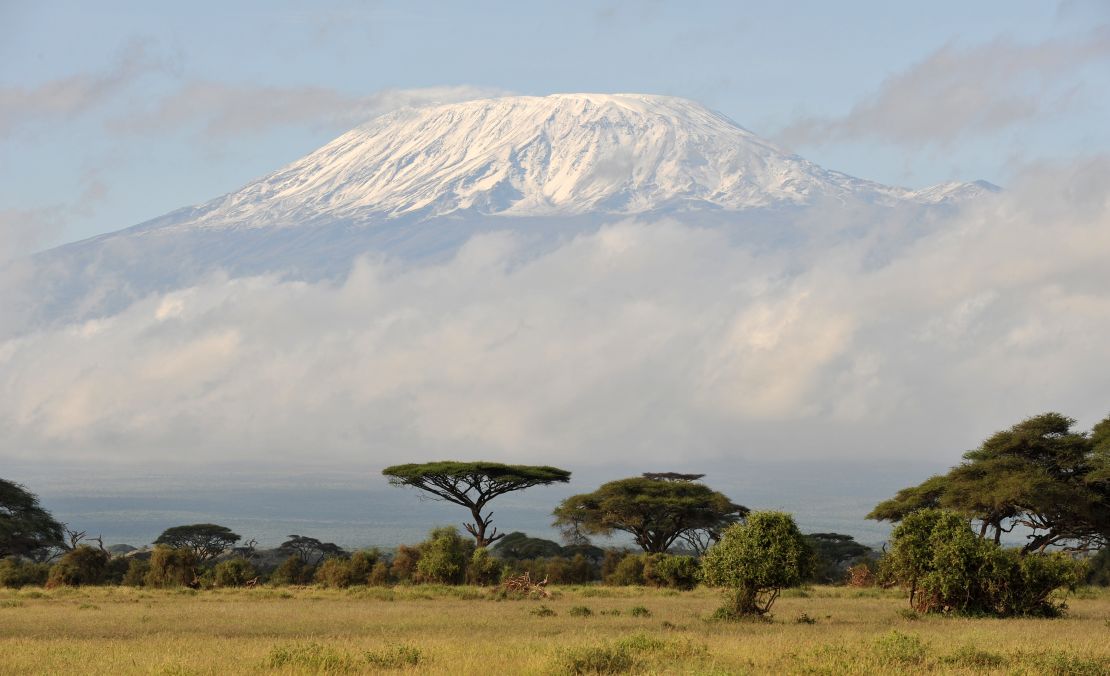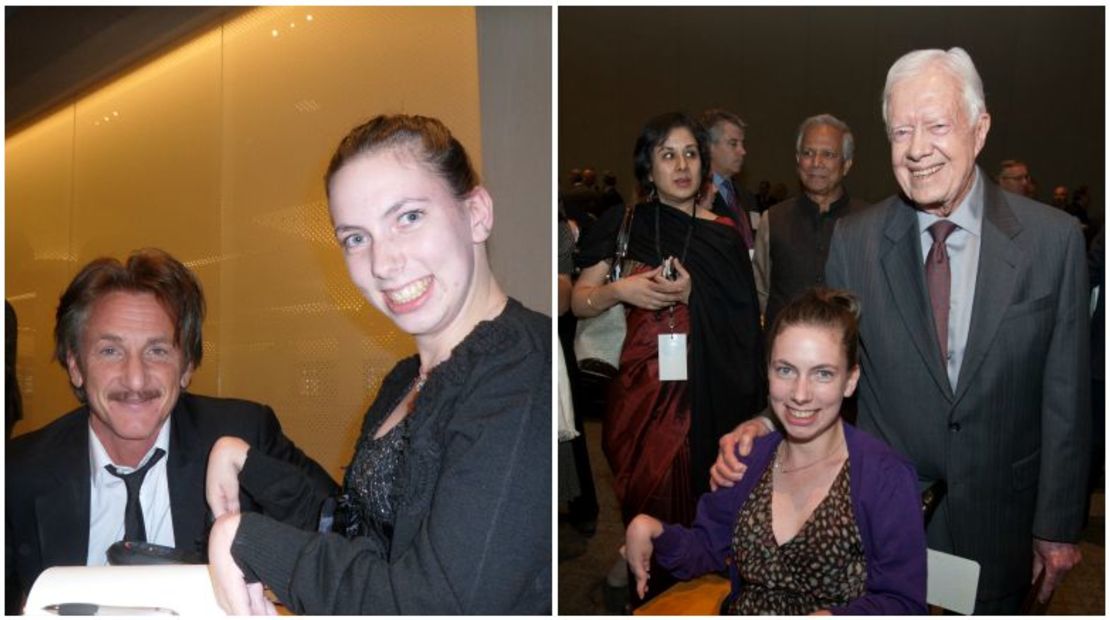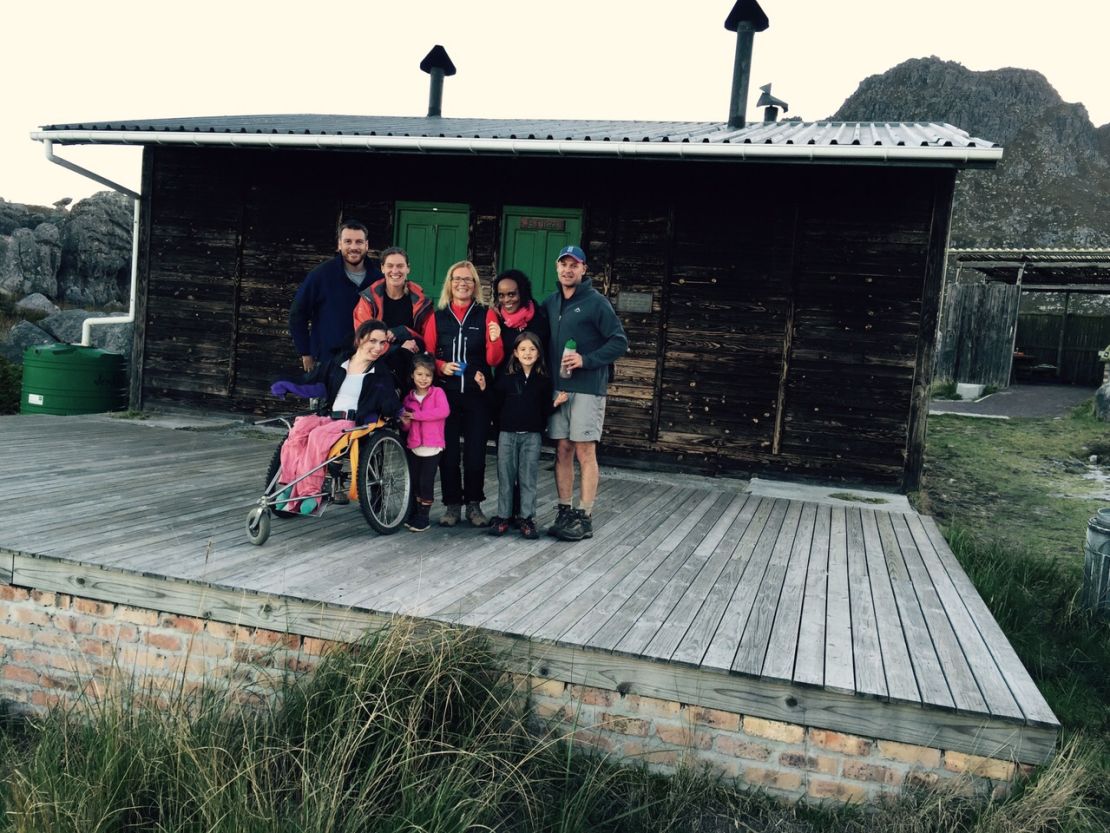Story highlights
South African Chaeli Mycroft plans to be the first female quadriplegic to climb Kilimanjaro
The disability rights activist, who won an International Children's Peace Prize, will turn 21 on the mountain
Life is full of little challenges. But some of them, like climbing the majestic Mount Kilimanjaro in a wheelchair, are gargantuan.
Chaeli Mycroft is planning to be the first female quadriplegic to achieve just that.
The 20-year-old South African travels to Tanzania Thursday to tackle Africa’s highest peak, beginning a grueling seven-day adventure up and down Mount Kili’s staggering 5,895-meter summit.

Diagnosed with cerebral palsy at 11 months old, Mycroft has spent her whole life in a wheelchair. She will ascend to Kilimanjaro’s summit in a custom-built, lightweight and ultra-manoeuvrable chair, pushed and pulled by two of her seven team members, the “Chaeli Kili Climbers.” Fans can follow the hike – five days up, two days down, six nights under canvas – with live video and social media updates.
Mycroft and her troop, which includes two experienced climbers, two business women, a physiotherapist, videographer and a student, will endure night time temperatures of well below freezing, as well as breathless levels of altitude.
They have been training for months in a simulated altitude chamber. “We’ve been getting used to the lack of oxygen,” says Mycroft, a few days before her flight to Tanzania. “It’s good physically but also mentally, to know how we’re going to feel – you have to learn how to breathe differently.”

Strong-minded team
It has taken almost three years of research and planning to develop this idea into Thursday’s mission. Kilimanjaro’s rocky climb is a challenge for even the toughest of athletes, but Mycroft has a special set of physical needs. Her body is prone to sudden temperature drops, making heat regulation vital. Her team can get her in and out of a thermal onesie in under three minutes.
“I’m not stressing about the mountain,” insists Mycroft.
“I have full confidence in my team and our ability to work together. If anything goes wrong, I know that we can find a solution. We have a very strong minded group of people. I think you need that in order to be successful.”
Valuable support
Mycroft knows success. The young Capetonian co-founded The Chaeli Campaign at just nine years old, with her older sister Erin and a group of close friends.
The girls, then aged between six and twelve, nailed their target of 20,000 rand ($1,500) in seven weeks, enough to buy Mycroft the motorized wheelchair so vital to her independence.
Now the charity assists over 5,000 children across South Africa each year, providing custom-made wheelchairs, speech and occupational therapy, disability support and inclusive education programs – Archbishop Desmond Tutu is a fan.

Philosophy of inclusion
Mycroft’s passion as an ability activist won her the International Children’s Peace Prize in 2011 and in 2012 the first ever medal for social activism by the Nobel Peace Laureates – no small feat for a 20-year-old in her third year at Cape Town University, the first disabled student with a personal assistant to live in campus accommodation.
“I think the drive of activism has always been a part of my makeup. I was raised to be open about my disability,” explains Mycroft. She lives and breathes a philosophy of inclusion, which is one of the reasons her team of climbers is so diverse – “It sends a message to people that it’s OK to be different. You can work together to make something beautiful happen.”
It’s also the guiding principle behind her pre-school, the Chaeli Cottage Inclusive Pre-School & Enrichment Center, which opened in February, providing integrated learning for six disabled and four able-bodied children. It aims to teach 20 by the end of the year.
“Ultimately, people learn things when they’re young. If they can learn inclusion when they’re young, it can be so much better for society,” says Mycroft, speaking from her experience joining mainstream school aged nine, an adjustment that was “not always easy.”
“There are so many lessons the able-bodied kids are learning from their disabled classmates – how to be gentle, how to have empathy and compassion. People need to live inclusion, you can’t just learn it out of a text book.”

A birthday to remember
With wisdom that’s enviable of a woman so young, Mycroft says she’s not planning too far into the future. “I’m just seeing where the opportunities lead me, excited to take them and open to what life has to offer.”
For now her focus is on conquering Kilimanjaro. “It’s going to be a once in a lifetime kind of experience. Our message is not solely about climbing physical mountains, it’s about people working together towards something that’s epic.”
“It’s more about working together to reach the top, rather than being the first female quadriplegic.”
Mycroft will be celebrating her 21st birthday on her second day up the mountain. “I hope cake is on the agenda, but I’m not holding out,” she laughs. “We also have alternative plans, like Twinkies.”







